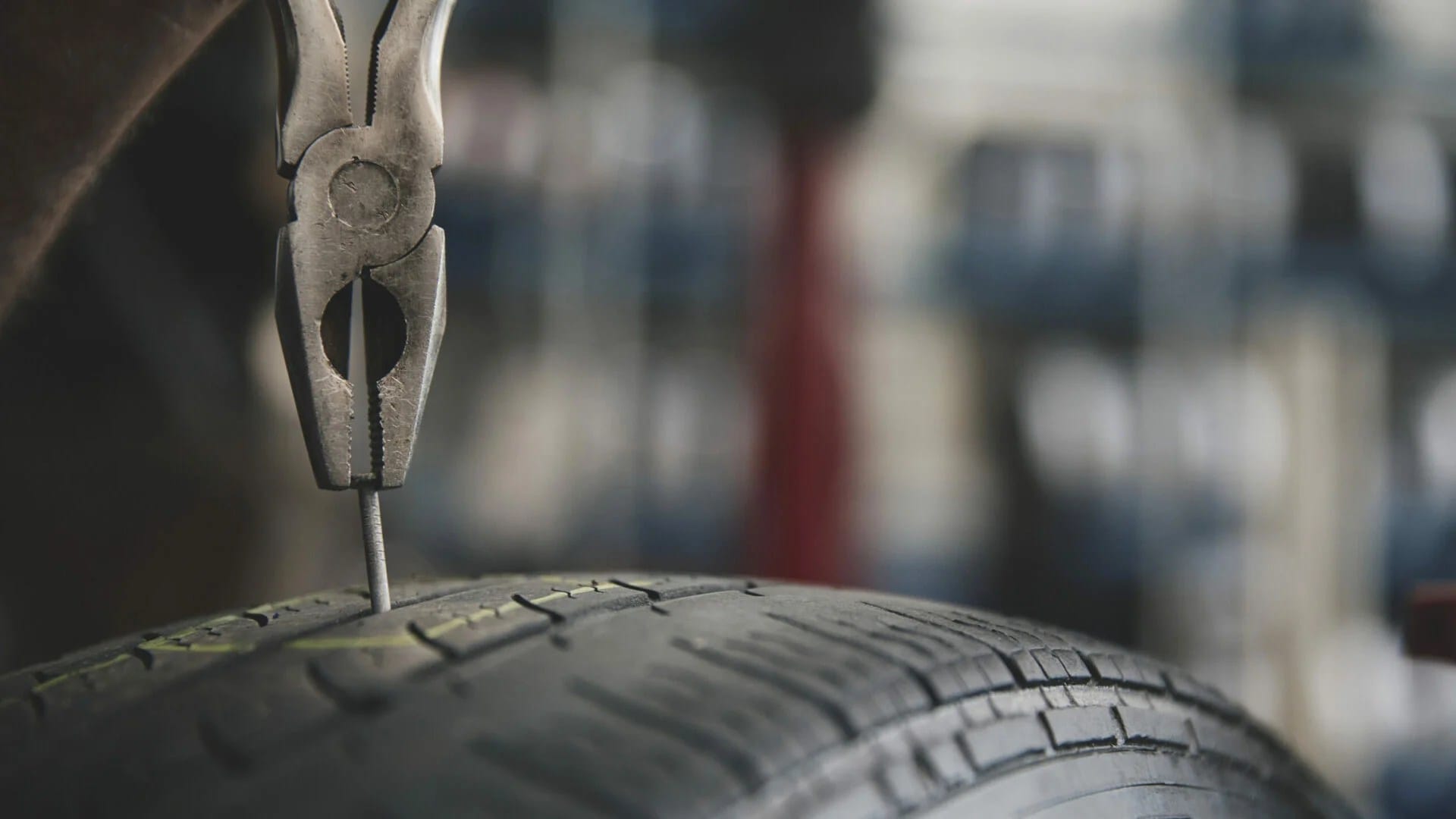We’ve all been there – cruising along when suddenly, *thump-thump-thump*… that sinking feeling of a potential flat tire. But is it truly flat, or just a puncture? And can you keep driving, or is it time to call for help?
This guide tackles everything you need to know about driving with a punctured tire, from understanding the risks to making smart decisions that keep you safe (and save you money in the long run). Let’s get rolling!
Is Driving With a Punctured Tire EVER a Good Idea?
Let’s cut to the chase: Driving on a tire with compromised air pressure, punctured or flat, is never ideal. Why? Because you’re jeopardizing a crucial aspect of driving – control.
Here’s a breakdown of what’s at stake:
- Loss of Control: As your tire loses air, it loses its shape and ability to grip the road effectively. This impacts your steering, braking distance, and stability, increasing the risk of an accident.
- Blowout Risk: Driving on a weakened tire puts it under immense stress, making a sudden blowout more likely. Imagine that happening at high speed – terrifying, right?
- Costly Damage: Even a short drive on a punctured tire can irreparably damage the tire’s internal structure, requiring a costly replacement. You also risk damaging your wheel, which adds another hefty expense to your problem.
Punctured vs. Flat: Knowing the Difference Matters
While both situations are far from ideal, there’s a vital distinction between a punctured tire and a completely flat one:
- Punctured Tire: This is like a slow leak. You’ve picked up a nail or sharp object, and air is escaping gradually. You might notice a slight pull to one side or a thumping sound.
- Flat Tire: This is when most, if not all, of the air is gone. Your tire is visibly deflated, and driving becomes impossible.
Understanding the difference helps determine how far you might be able to drive (hint: not far) and what actions to take.
Run-Flat Tires: Your Potential Saving Grace (But Don’t Assume!)
Some modern vehicles come equipped with run-flat tires, specifically designed to withstand punctures and allow for limited driving even after losing air pressure.
- Run-Flat Advantages: These tires usually allow you to drive around 50 miles at a reduced speed (check your owner’s manual for specific limits), giving you enough leeway to reach a repair shop.
- Don’t Assume You Have Them! Many drivers mistakenly believe their cars have run-flats when they don’t. Check your owner’s manual or look for “RFT” markings on your tire sidewall to be sure.
Can Tire Sealant Save the Day?
Temporary tire sealant products can be a lifesaver in a pinch, injecting sealant into the tire to plug the hole and inflate it enough for you to drive a short distance.
- Effectiveness Varies: Sealants work best on small punctures. A large gash or sidewall damage? Likely not.
- Temporary Fix ONLY: Consider sealants a band-aid to get you to a garage, not a permanent solution.
What To Do When You Suspect a Puncture: A Step-by-Step Guide
- Safety First! Don’t slam on the brakes! Carefully steer your car off the road and away from traffic to a safe, level spot.
- Assess the Situation: Check your tire. Is it completely flat or slowly losing air?
- Flat Tire? Call for Help: If you have a spare and the tools, you might be able to change it yourself. If not, call for roadside assistance.
- Slow Leak? Consider sealant, but remember, it’s a temporary fix. Drive directly to a repair shop.
The Bottom Line: Don’t Gamble With Safety
While driving on a punctured tire for a very short distance might seem tempting, the risks far outweigh the perceived convenience. Getting it fixed professionally ensures your safety and prevents further, potentially more costly, damage.
Remember: When it comes to tires, a proactive approach keeps you rolling safely and confidently.
- Unveiling the Enigma: Mansoureh Khojasteh Bagherzadeh’s Public Appearances & Private Life in Iran - July 18, 2025
- Unveiling the Mystery: Mansoureh Khojasteh Bagherzadeh’s Husband: A Rare Glimpse into a Private Life - July 18, 2025
- Unveiling Masoud Khamenei’s Mother: Power, Influence, and Iran’s Future - July 18, 2025
















